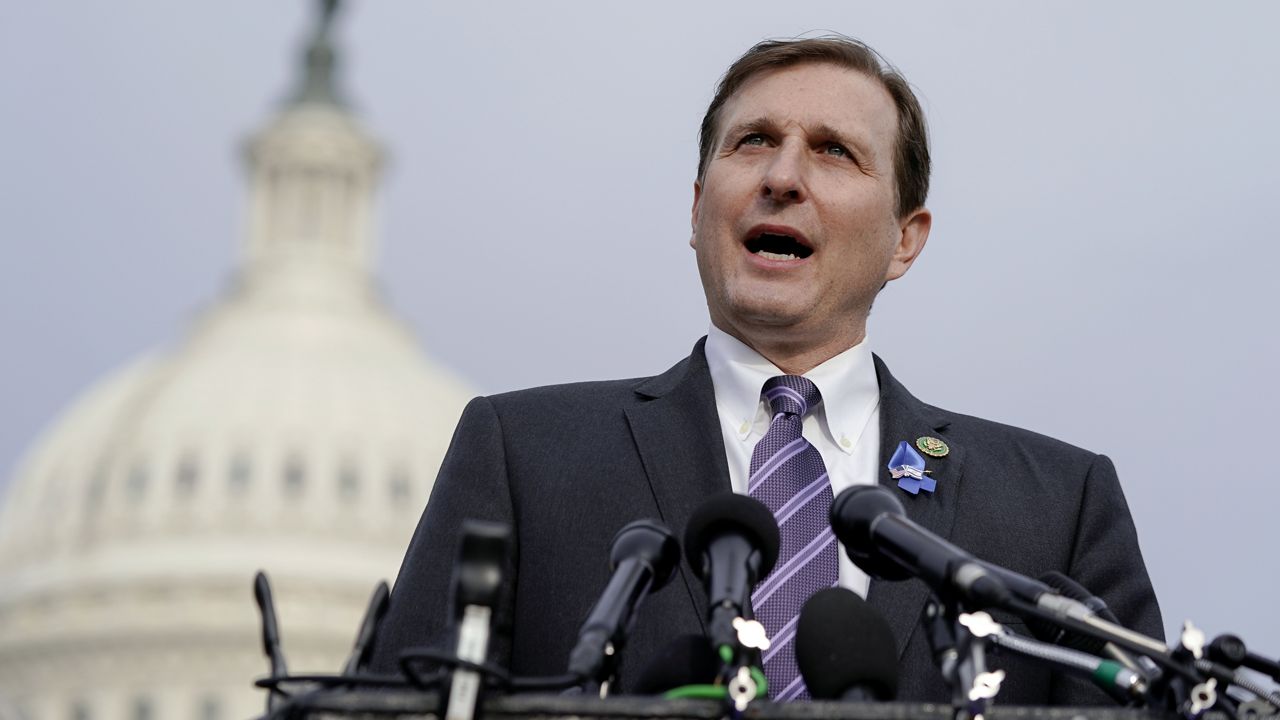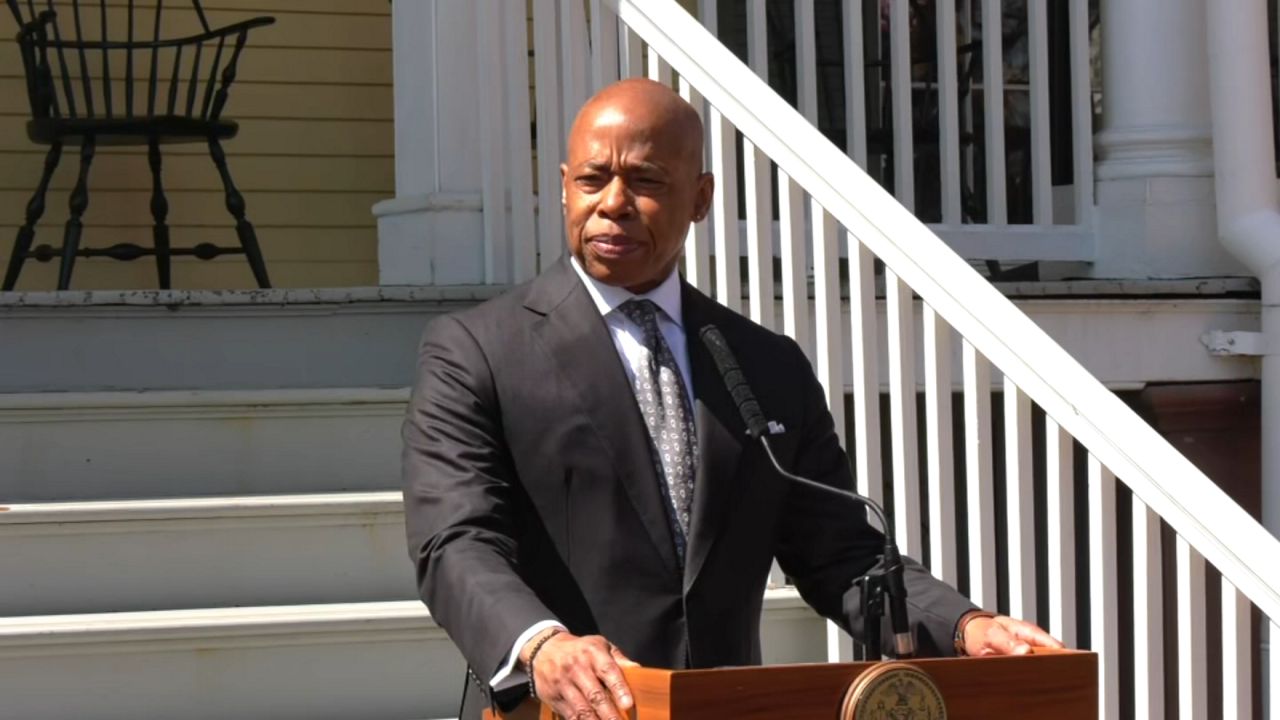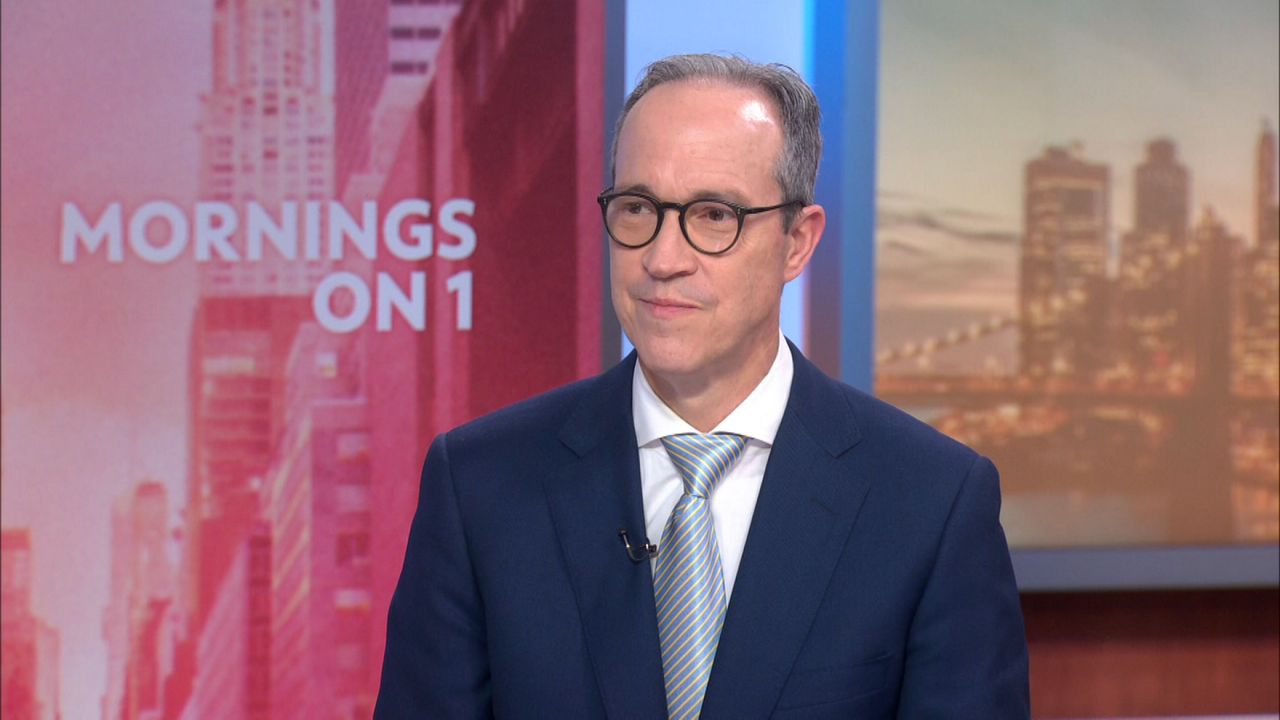At the tail end of the de Blasio administration, the city authorized the opening of two overdose prevention centers in Manhattan, which are the only ones in the country.
Since then, advocates and the center's operators have been pushing for more money from the state and authorization to open more locations. But that’s unlikely to happen, at least this year.
What You Need To Know
- Overdose prevention centers opened in November 2021
- Officials at the centers said they have intervened in more than 1,500 overdoses
- But they are still looking for more support from Albany
Jordan Hoshauer, 38, has been using drugs since he was 16.
A short time before he sat down for with NY1, he said he nearly overdosed.
"Today, I technically fell out, quote on quote, basically lost consciousness,” he said. “The staff here, which is highly trained and very professional, they put me up with the oxygen. They said I was blue."
Hoshauer was using at OnPoint NYC, one of the city's two overdose prevention centers.
People come to the center to use illegal drugs — monitored by staff who are there to step in should something go wrong — equipped with naloxone.
They opened in 2021 as the city faced a record number of fatal overdoses.
In 2022, the latest numbers released from the city's health department, more than 3,000 New Yorkers died from an overdose.
Lillie Baines is another heroin user.
"You have to know who you buy from when you using the drugs these days, because it will take you out,” she said. “But you know what? Thank God, these people have the material to help you come back."
New data obtained exclusively by NY1 shows OnPoint has intervened in or reversed more than 1,500 overdoses since it opened.
But the mission is still very much controversial.
In the final days of the legislative session, advocates and OnPoint are pushing for state help.
"The city needs a few in every borough, at least,” Sam Rivera, the executive director of OnPoint NYC, said. “The state needs, I don't even know what that number could be, the state needs many. Some of it is people worrying about the illegal aspects of it. I thought we've proven that it’s not something to necessarily worry about these days, right now, but people are just really frozen in time."
They want some of the state's $335 million opioid settlement money.
Advocates are also pushing Albany to approve legislation that would authorize their use statewide.
"There has been almost nothing coming out of Albany this legislative session that really grapples with the amount of death that is occurring every day in New York State most acutely in Black and brown neighborhoods," Toni Smith of the Drug Policy Alliance said.
For now, its unlikely to go anywhere. The governor has questioned the legality of the centers.
So has the U.S. attorney's office in Manhattan. Those inside, not surprisingly, disagree.
"I believe there's a number of factors that make it important,” Hoshauer said. “The number one is it prevents overdoses."




_Overdose_prevention_site_lobbying_Albany_donut?wid=320&hei=180&$wide-bg$)


_CGPK_Mn_Columbia_Students_Chained_CG)

